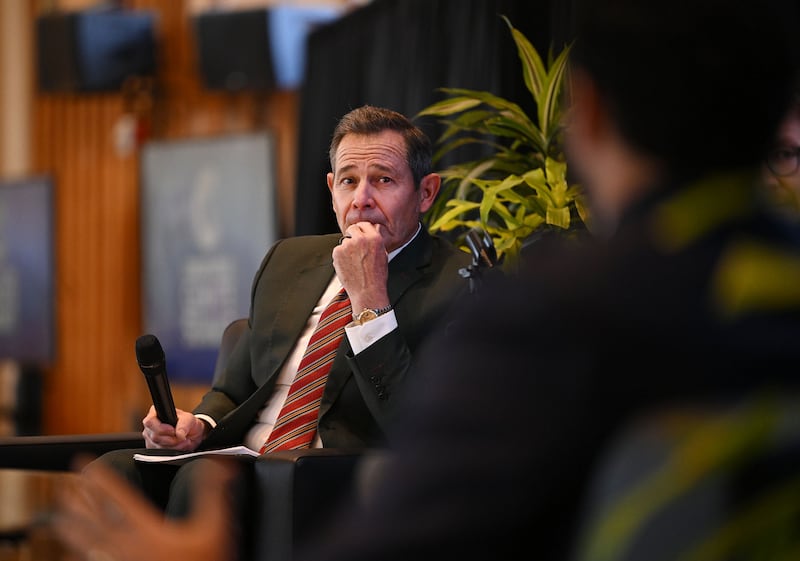Congressional Republicans have experience shutting the government down over the last 15 years, according to Sen. John Curtis, who said the party’s goals in such situations have typically been to reduce government spending.
While he admits that shutdowns have “never gone well for Republicans,” he said Democrats lack a strategy for getting out of the current shutdown, which is now the longest on record. He said he and other Republicans blame Senate Democrats for not supplying enough votes to clear the 60-vote threshold to pass a temporary funding bill, and that Democrats aren’t giving the GOP space to negotiate in asking for an extension of COVID-era subsidies for health insurance.
“Democrats are saying, ‘Hey, unless you not only just negotiate this, unless you do this, we’re not going to open the government back up,’” the Utah Republican explained during a virtual town hall Friday. “I think one of the things Republicans learned from the years of shutdowns that we’ve done is you want to go into that with an exit plan. ... Democrats don’t do a lot of shutdowns. I don’t think they realize that.
“So, they have no exit plan from here other than this off-ramp that Republicans ... spend over a trillion dollars in subsidizing zero premiums for people at all levels.”
Senate Republicans have brought up votes on a stopgap funding bill more than a dozen times since the current shutdown began on Oct. 1, and Curtis said Democrats have voted against them because if they were to pass even partial funding for some government employees and programs, “it takes the pressure off the shutdown.”
Curtis said the current shutdown feels like “opposite day,” with Democrats pushing for a legislative change before reopening the government and Republicans warning that social services and federal workers’ paychecks will be disrupted without a resolution.
“How do you negotiate when you’re not asking for anything?” he asked. “Republicans have said, simply, ‘No, we have no legislative priorities that we’re trying to add to this. We’re just simply trying to open the government.’ This doesn’t give you a (place) for negotiation, especially when the other side says it’s everything we want or nothing.”
Curtis is open to a conversation on the insurance premium subsidies, but said government subsidies lead to higher costs.
“I think a much better conversation to have on health care would be: How do we make prices go down so we don’t have to subsidize it?” he said.
Democrats have tried to focus the shutdown on Americans whose premiums will skyrocket next year if the enhanced premium subsidies for people enrolled through the Affordable Care Act expire, but the shutdown has threatened other vulnerable Americans who rely on the federal government for nutritional and other assistance.
President Donald Trump’s administration asked a federal appeals court to block an earlier order requiring it to distribute full monthly SNAP food benefits this month, but Curtis said he would encourage the president to use available contingency funds while they are available.
“I don’t know any of us that doesn’t want everything possible to be used to make sure we’re meeting those SNAP benefits,” he said, “but at some point, as the shutdown goes on, we run out of those options as well, which is why shutdowns are a bad idea to do.”

